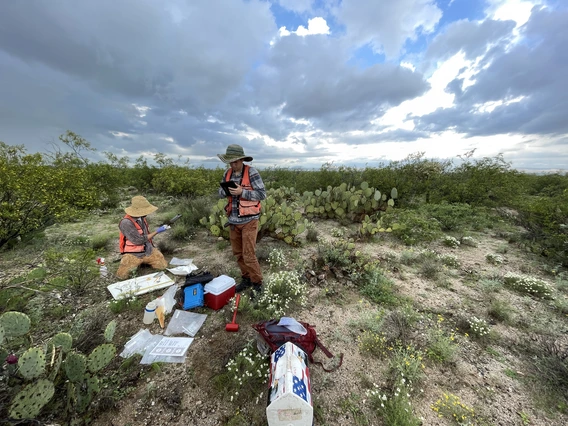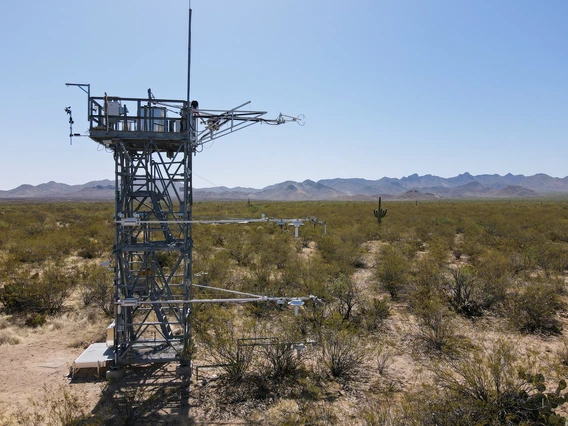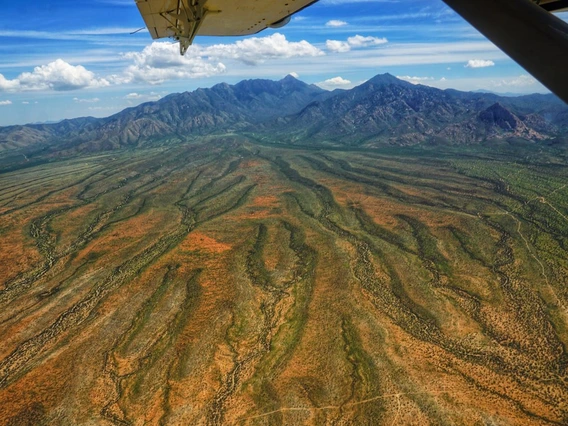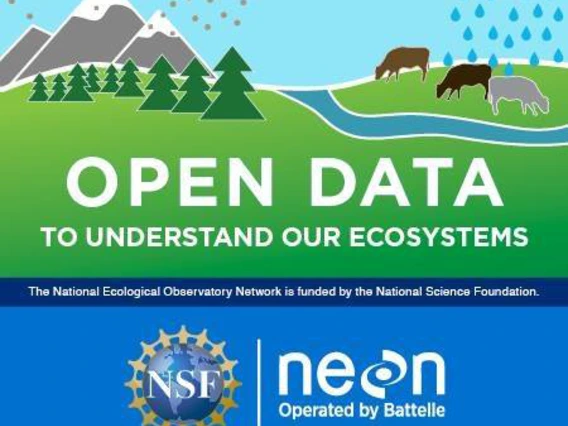This section provides access to the National Ecological Observatory Network (NEON) and highlights their ongoing efforts at the Santa Rita Experimental Range (SRER).
NEON, sponsored by the National Science Foundation and operated by Battelle, is a continental-scale observation facility designed to collect long-term open access ecological data to better understand how U.S. ecosystems are changing. The comprehensive data, spatial extent, and remote sensing technology provided by NEON enable a large and diverse user community to tackle new questions at scales not accessible to previous generations of ecologists.
NEON manages 81 field sites strategically located across the United States within 20 eco-climatic Domains that represent regions of distinct landforms, vegetation, climate, and ecosystem dynamics. Sites include 47 terrestrial field sites and 34 freshwater aquatic field sites. All NEON data collected at these sites are open access; and they are collected using standardized, well-documented methods to enable users to better understand how our nation's ecosystems are changing.
The Santa Rita Experimental Range is the core terrestrial field site within Domain 14 (Desert Southwest). Domain 14’s gradient terrestrial site is Jornada Experimental Range (JORN) and the core aquatics site is Sycamore Creek (SYCA).
Read more about how NEON collects data and samples at its field sites. NEON’s data collection efforts at SRER are covered in the sections below.
The 2022 NEON Airborne Observation Platform (AOP) flight window over the SRER
was 8/28/22 – 9/11/22.
Check all daily flight reports posted by the NEON’s AOP team here:
https://www.neonscience.org/data-collection/daily-flight-reports
Contact Abe Karam (akaram@BattelleEcology.org) for more information.
The 2023 flight schedule has not been finalized yet, though AOP is not expected to fly
in Domain 14 (Desert Southwest) next year.
Subscribe to the NEON Newsletter
to get updates on events, opportunities, and how NEON is being used today.

NEON Observational Sampling at SRER
Learn more about NEON’s observational sampling at SRER, associated data products, and opportunities for the community to utilize the NEON platform for further research.

NEON Automated Instruments at SRER
Learn more about NEON’s automated instruments at SRER, associated data products, and opportunities for the community to utilize the NEON platform for further research.

NEON Airborne Remote Sensing at SRER
Learn more about NEON’s remote sensing platform, associated data products, and opportunities for the community to utilize the NEON platform for further research.

Accessing NEON’s Spatial Data and Maps
Download spatially referenced data (kml/kmz files or shapefile format) for the location of the NEON Domains, field site locations, observational sampling locations, airborne remote sensing boundaries, and more.

